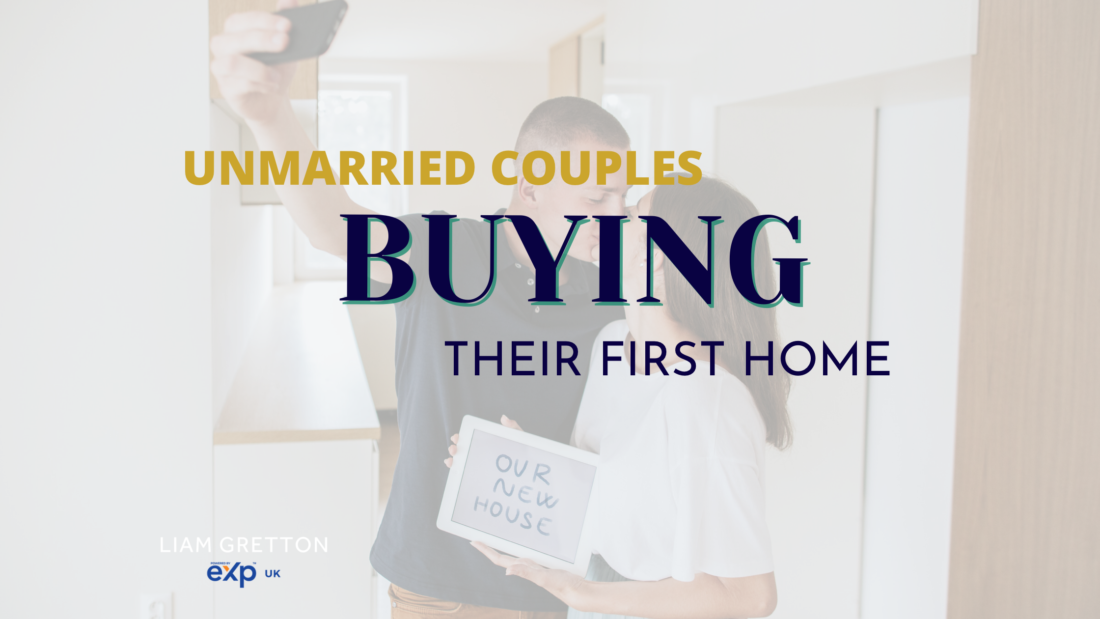Unmarried Couples Buying Their First Home
December 11th, 2021

There are an awful lot of difficulties to overcome, uncertainties to evaluate and risks to measure when you’re involved in making one of your largest lifetime purchases.
It’s a new experience and an exciting time but there’s one thing, especially for First Time Buyers and more so unmarried couples that is always spoken about in the background between direct family and close friends but not to the person their planning to purchase with.
For unmarried couples buying a house, there are some key legal issues that need to be understood that only refer to those who are buying a property and who are not married.
The biggest issue of all, What will happen to their shared home should they decide to break up? And the real question is how unmarried couples can protect themselves – and avoid the potentially expensive process should they split up.
Now, if you’re asking the question, ‘Can you buy a house with someone if you’re not married?’, then the answer is, ‘Yes’.
You simply need to meet the criteria of the mortgage lender to do so but there are some legal terms that you’ll need to appreciate before signing on the dotted line, which include:
- Will you be classed as being ‘beneficial joint tenants’, meaning that the house will belong to both of the owners jointly? Under this term, you are joint tenants and do not own specific shares and you cannot give away your share in the property as part of a will. Should either of the named couple die, then their property interest will automatically pass to the other person.
Or
- Will you own the house as ‘tenants in common’, which means that both owners jointly own it but each has a specific share of the property’s value. The owner is then free to sell or mortgage their share of the home or if they really want out of the relationship, they can give it away.
Essentially unmarried couples who put equal amounts of money into the purchase of a property should take legal advice. A solicitor will probably recommend that you become tenants in common with a ‘declaration of trust’ to legally set out the percentage of the property’s value they each will own. Here’s one of the first difficulties, Often its 50/50, But if you’re putting more of your savings down to meet the requirements then its essential to ensure you’re setting out the right percentages legally, you could be putting yourself out of pocket.
It’s also worth remembering that this document will then be registered with the Land Registry, so there’s a legal record of who owns the property and at what percentage. This means that you need this record to be absolutely accurate.
For unmarried couples, this will mean undertaking what could be an uncomfortable but extremely important conversation for many people about what happens should you die or split up.
One of the main and most common issues to consider for unmarried house buyers is who gets the house when an unmarried couple splits up.
Unfortunately, while this will be a very sad and upsetting time for one or both parties, there is no law in England and Wales that will allow for the assets of what were a cohabiting couple to be divided after they separate in the same way as they would be if a marriage breaks down.
You need to consider:
- Under divorce law, the assets of a married couple will be shared fairly regardless of who owns the property legally. This does not apply to unmarried couples.
- Unmarried couples who are in a long-term relationship and have bought a house are not legally protected.
- However, if you can prove that you have contributed financially to the home then you may be able to claim interest on the equity – or the profit – the house has enjoyed.
This process can be costly and time consuming so this is where a cohabitation agreement can help protect you both but also your assets as part of a formal arrangement should your relationship come to an end.
When it comes to the issue of how you split up a house after a break-up, then you need to appreciate that the law will be treating two unmarried people who have bought a property as unrelated individuals, So without any documentation in place means that financial claims may be possible, but only in limited circumstances.
It’s also worth bearing in mind that when an unmarried couple sells their property, then the mortgage and charges will need to be repaid in full. Along with the conveyancing fees and the estate agents commission before any profits are divided up.
The real issue for anybody considering buying a house before they are married is preparing for the worst-case scenario and having the correct documentary evidence, essentially an exit plan of how much money they will be entitled to, family and friends may have brought up the situation and be talking about it openly but you and your partner need the real conversation, maybe this is an subtle sign?


